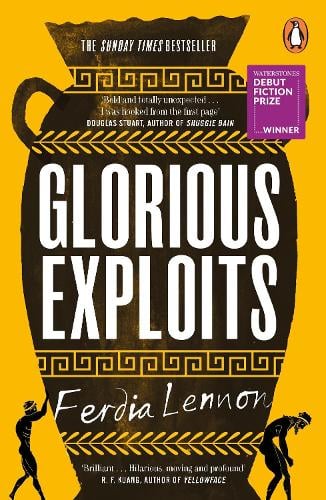The story pulses with vitality despite bleak circumstances, driven by a likeable narrator with a dry sense of humor and an engaging Irish dialect. The novel balances melancholy with wit, creating a compelling blend of tragedy and humor.
This review highlights how Ferdia Lennon crafts a vivid narrative set in a bleak historical setting but infuses it with life through the character of Lampo, whose distinct Irish dialect and dry humor bring levity and charm to the story. The humor often emerges from Lampo's unspoken thoughts and the contrast of ancient events narrated in modern vernacular, making the tragic backdrop more approachable and engaging. The relationship dynamics, especially with orphaned children and other characters, add depth and complexity, while the tragic consequences of the play productions keep the story grounded in its harsh reality. The reviewer appreciates the novel’s ability to entertain and provoke thought simultaneously. They emphasize that the humor and vitality do not undermine the novel’s serious themes but rather complement them, creating a rich narrative texture. The interplay of historical context with contemporary speech styles offers a fresh and unique storytelling approach that makes the ancient world feel immediate and relatable. The reviewer finds Lennon’s narrative style compelling, especially the use of humor as a natural response to adversity, making this debut novel both funny and poignant.
Quick quotes
Despite the bleakness of the setting and Gelon and Lampo’s personal circumstances, and the melancholy and loneliness that characterises both men, Lennon’s story manages to pulsate with a vitality that defies this.
Lampo, who narrates the story through a distinct Irish dialect punctuated by much swearing and a very dry sense of humour that will make the book very funny to you if you share it.
The novel’s humour often came in the form of an unuttered thought of Lampo’s in response to an annoyance.
